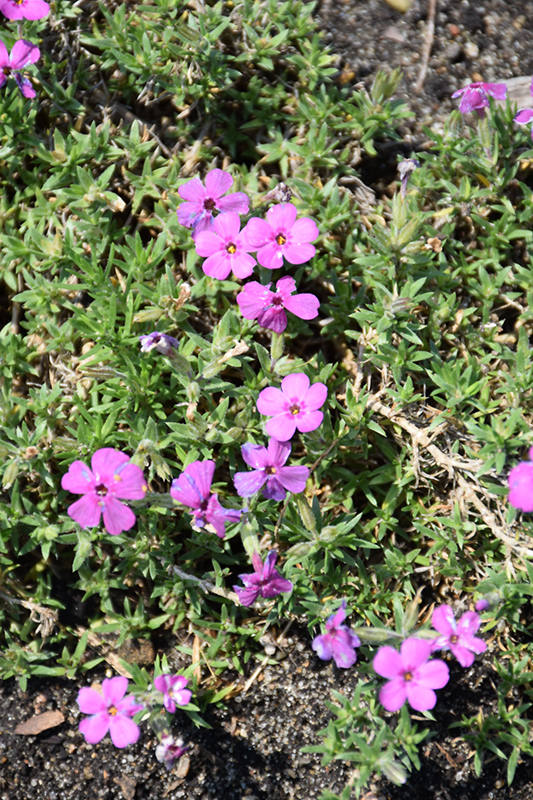Plantfinder
siteadmin2023-06-04T13:10:09-03:00
Rocky Road Magenta Phlox
Phlox 'Rocky Road Magenta'
Plant Height: 4 inches
Flower Height: 6 inches
Spacing: 30 inches
Sunlight:
![]()
![]()
Hardiness Zone: 2a
Other Names: Hybrid Spring Phlox
Group/Class: Rocky Road Series
Brand: Walters Gardens
Description:
A vigorous perennial which makes an excellent spring groundcover; absolutely covered in showy magenta flowers in mid to late spring, over attractive fine foliage; forms spreading mounds; tough, durable and drought tolerant
Ornamental Features
Rocky Road Magenta Phlox is smothered in stunning fuchsia star-shaped flowers at the ends of the stems from mid to late spring. Its tiny narrow leaves remain bluish-green in colour throughout the season.
Landscape Attributes
Rocky Road Magenta Phlox is a dense herbaceous perennial with a ground-hugging habit of growth. It brings an extremely fine and delicate texture to the garden composition and should be used to full effect.
This plant will require occasional maintenance and upkeep, and should only be pruned after flowering to avoid removing any of the current season's flowers. Gardeners should be aware of the following characteristic(s) that may warrant special consideration;
- Spreading
Rocky Road Magenta Phlox is recommended for the following landscape applications;
- Mass Planting
- Rock/Alpine Gardens
- Border Edging
- General Garden Use
- Groundcover
Planting & Growing
Rocky Road Magenta Phlox will grow to be only 4 inches tall at maturity extending to 6 inches tall with the flowers, with a spread of 3 feet. When grown in masses or used as a bedding plant, individual plants should be spaced approximately 30 inches apart. Its foliage tends to remain low and dense right to the ground. It grows at a medium rate, and under ideal conditions can be expected to live for approximately 10 years. As an herbaceous perennial, this plant will usually die back to the crown each winter, and will regrow from the base each spring. Be careful not to disturb the crown in late winter when it may not be readily seen!
This plant does best in full sun to partial shade. It prefers dry to average moisture levels with very well-drained soil, and will often die in standing water. It is considered to be drought-tolerant, and thus makes an ideal choice for a low-water garden or xeriscape application. It is not particular as to soil pH, but grows best in poor soils, and is able to handle environmental salt. It is somewhat tolerant of urban pollution. Consider covering it with a thick layer of mulch in winter to protect it in exposed locations or colder microclimates. This particular variety is an interspecific hybrid. It can be propagated by division; however, as a cultivated variety, be aware that it may be subject to certain restrictions or prohibitions on propagation.
A NetPS Plant Finder tool
